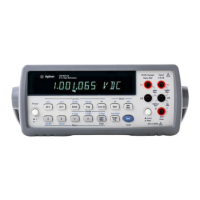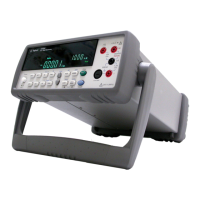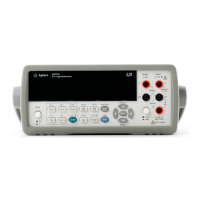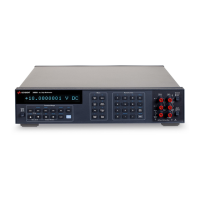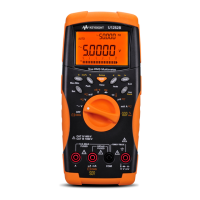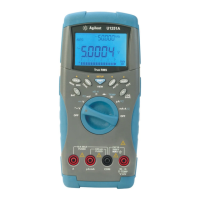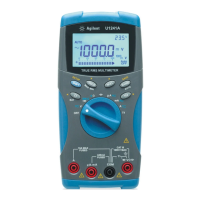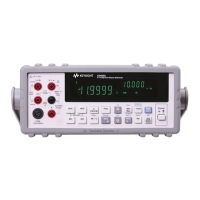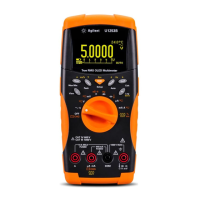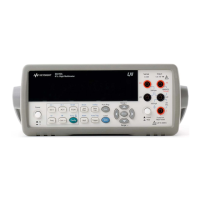RTDs
An RTD uses a metal (typically platinum) that changes resistance with a
change in temperature. Your meter can measure this resistance and by
knowing the characteristics of the RTD, calculate the temperature.
RTDs have the highest stability of the temperature transducers. Their
output is also very linear. This makes the RTD the transducer of choice
for high accuracy, long-term measurements. RTDs come in two main
types:
a
= 0.00385 (DIN/IEC 751) and
a
= 0.00391.
The RTD resistance at 0
°
C is referred to as nominal or R
0
. The meter
can use RTD’s with R
0
values from 4.9 Ω to 2.1 kΩ.
The meter always makes a 4-wire measurement of RTDs to preserve
their accuracy.
Thermistors
Thermistors use materials that change resistance with changes in
temperature. Your meter can measure this resistance and by knowing
the characteristics of the thermistor, calculates the temperature.
Thermistors have a higher sensitivity than thermocouples or RTDs. This
makes thermistors the transducer to use when measuring very small
changes in temperature. Thermistors are, however, very non-linear,
especially at high temperatures and function best below 100
°
C.
Because of their high resistance, thermistors can be measured using two
wire measurement techniques. The meter supports 5000 Ω thermistors.
Chapter 7 Measurement Tutorial
Measurement Techniques and Sources of Error
264
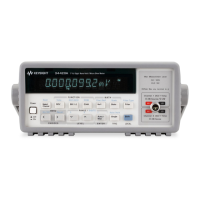
